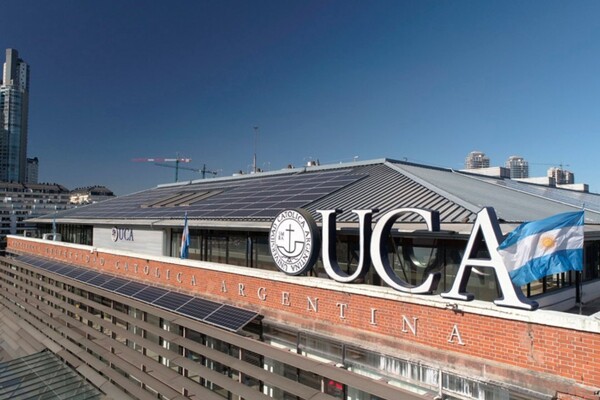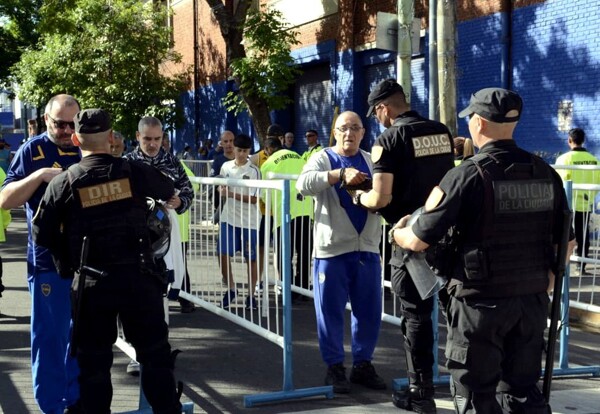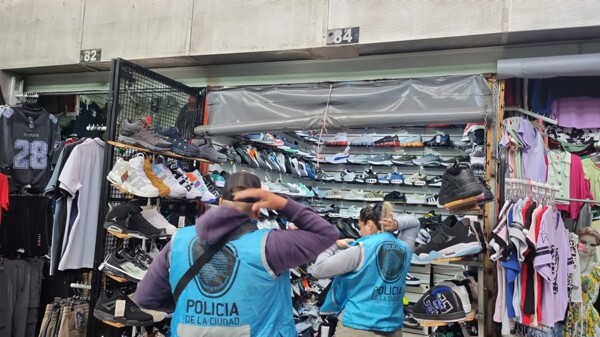This week has been astounding in many latitudes, but especially in Argentina and the United States. Here, the positive surprise came with the long-awaited start of the oral trial in the “Notebooks” case, which will keep Cristina Fernández, her accomplices, and the crème de la crème of the public construction industry seated in the shameful dock of the accused for a long time. This destroyed the internal criticism that Scott Bessent had received for his announcements of support for Argentina, but also those who here ranted against a non-existent debt. On Tuesday, Donald Trump, despite not being on the electoral ballots, suffered catastrophic defeats in the city of New York and the states of Virginia and New Jersey, in addition to several cities where Republican candidates fell without remedy. Meanwhile, the European Community, through uncontrolled immigration and the foolish incorporation into its ranks of some countries reluctant to adopt its principles, and the United States, home to the world's oldest democracy, today with a violently fractured society, seem intent on launching themselves onto grenades about to explode. Despite the regret that Guillermo Francos' resignation causes me, as it does to a large part of the electorate, a man with a political history and good manners, I must admit that, while the appointment of Manuel Adorni as Chief of Staff seems truly innocuous to me, I agree with the appointment of Diego Santilli as Minister of the Interior, since he is, as his past demonstrates, a man with great flexibility and experience in negotiation, virtues that the Government is forced to incorporate to have the necessary force in the “Holding Pen” to achieve the sanction of the structural reforms that our country needs to get out of the filthy quagmire in which two decades of pero-kirchnerism submerged it. That task will certainly be greatly facilitated because, on the horizon, only Javier Milei and the governors remain. And these, after the failure of the “United Provinces” experiment, will accompany the changes that La Libertad Avanza proposes, because the one who holds the pen, in such a presidential country, will not tolerate dissent; I exclude from that position irrecoverable cases, such as Gildo Insfrán (Formosa), Gerardo Zamora (Santiago del Estero), Ricardo Quintela (La Rioja) and Axel Kicilloff (Buenos Aires). The old “movement,” inherited by franchises of all kinds, from the “special formations” terrorists – fostered by Juan Perón in the 70s to return to power – to the very different models of Isabel Perón, Carlos Menem, Eduardo Duhalde, Néstor Kirchner, Cristina Fernández and Alberto Fernández, all with their denied legitimacy – “they were not Peronists!”. She, in addition, will soon have to face another trial – which will be added to “Hotesur/Los Sauces” and “Memorándum con Irán” – since ANSES, in addition to suspending the collection of her two privileged pensions, will demand the return of $1,000 million for having received them illegally. Time and the citizenry will say if this vocation is maintained, but for now it is clear that our country avoided, on Sunday October 26, committing mass suicide, in the style of the one ordered by Jim Jones in 1975 to the fanatics who followed him to Guyana, 900 of whom obeyed him. – to evade the responsibility that corresponded to him in the successive disasters that they produced, today he is in serious problems, derived from the obstruction of any renewal that, from San José 1111, the former President exercises to prevent the emergence of decent leaders. The centennial Radical Party, practically disappeared, pays for the guilt of having inexplicably delivered its national leadership to Martín Lousteau, a parachutist who, upon assuming, ended with the cursus honorum that was a secular tradition among the “white berets”. The President had led a fierce attack – he accused him of communist, among other epithets – against Zohran Mamdani, the young Muslim and pro-Palestinian of only 34 years, born in Uganda and naturalized in 2018, who expresses the opposite of his worldview, especially on social and migration policies, but received big surprises both in the “Big Apple” and in territories until now traditionally faithful to the Republicans. With these victories, the Democratic Party has given a notable turn to the left and recovered a large part of the electorate – in the USA voting is not obligatory, and many of those who now support it had abstained in the presidential ones due to the lack of political weight of Kamala Harris – to position itself before the midterm elections, which will be held next year and put at risk the fragile majorities that Trump enjoys today in both chambers of the Capitol. And the anachronistic and ossified CGT has suffered an implosion that will weaken all opposition to the labor reform that the Government proposes, essential to end the tragic fascism of the current system, which has sent half of the workers to informality and abandonment and only benefits and enriches the gerontological union leaders. In another order of things, it was also surprising the gain (10%) that the United States Treasury obtained by selling the pesos it had acquired when the dollar's quotation collapsed in the local market. By Enrique Guillermo Avogadro (Note N° 1019) “Every great culture dies by suicide, not by murder”. Arnold Toynbee
Political and Economic Situation in Argentina
Analysis of key political and economic events in Argentina, including the start of the 'Notebooks' trial, Guillermo Francos' resignation, the appointment of a new minister, and the impact of these decisions on the country's future.













